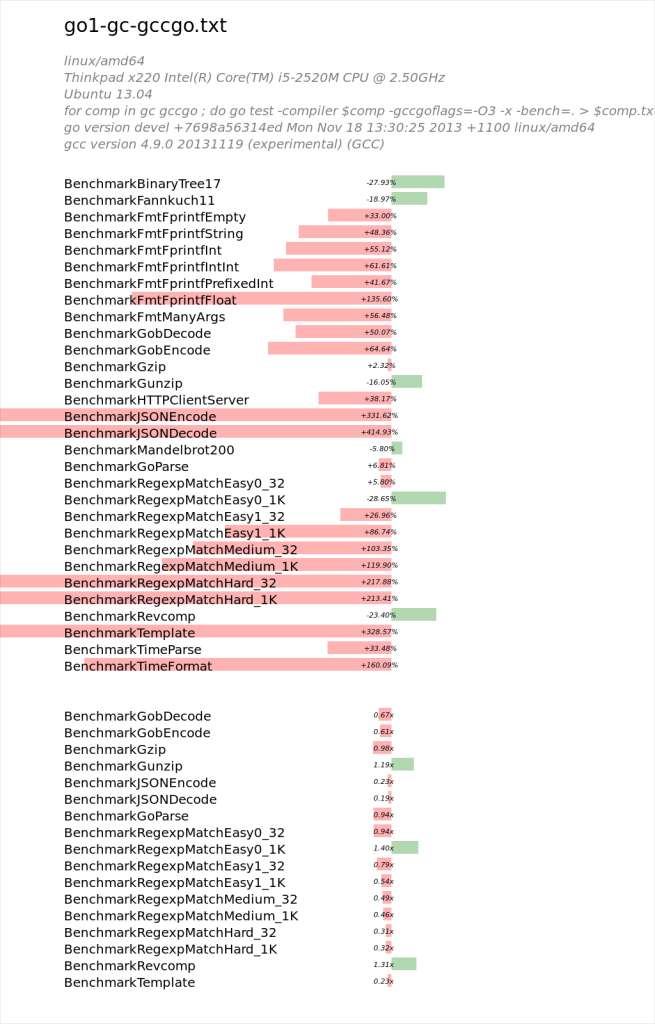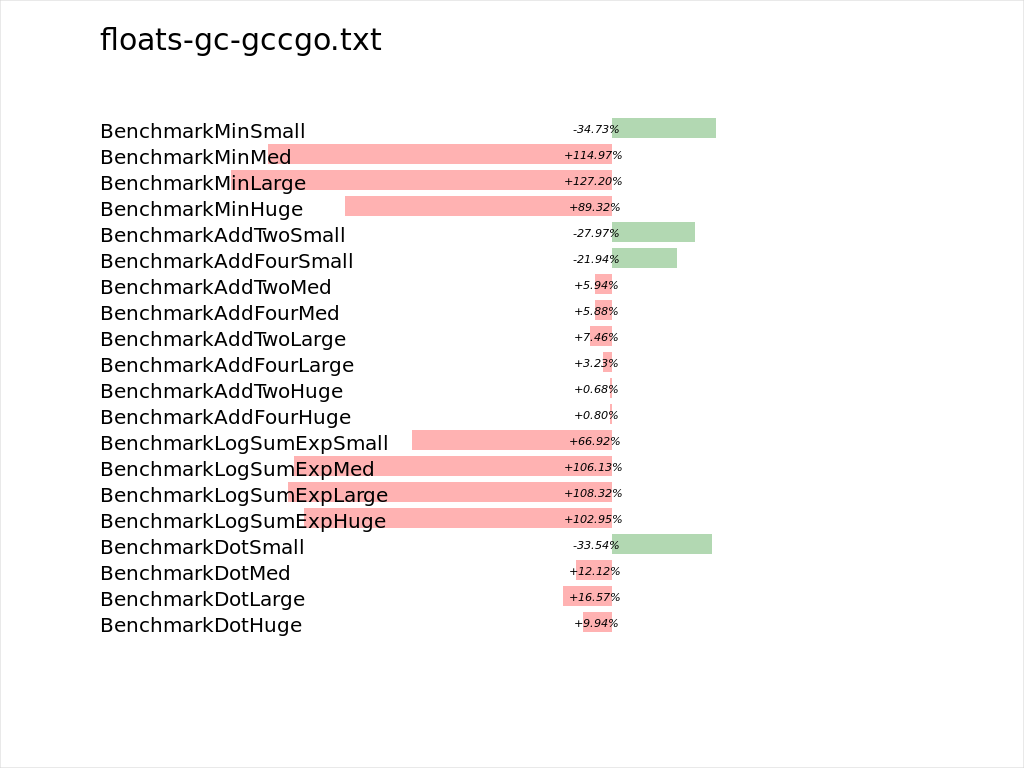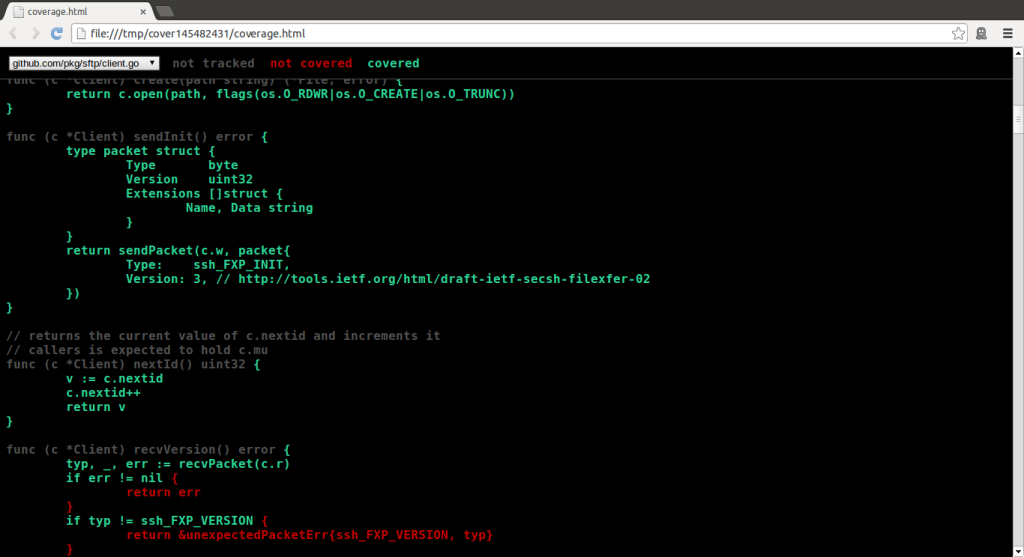Over the last few weeks I had the opportunity of working with the Joyent folks on the port of Go to Solaris1.
As part of this work I noted that the Joyeurs were using their rather spiffy Manta service for sharing code snippets and build logs. This made the rest of us using Pastebin services feel rather Web 1.0.
So, last weekend I sat down and wrote a simple Manta client in Go. As of this morning the total line count including tests was less than 450 lines. I don’t know how that compares to the Node.js or Java clients, but i’d be willing to bet it is far shorter thanks to the utility of the Go standard library.
Code is on github, https://github.com/davecheney/manta. Also included are implementations of some of the Manta CLI utilities.
Docs are on godoc, http://godoc.org/github.com/davecheney/manta
- Our port is actually called
sunos/amd64partly because Aram and I are nostalgic curmudgeons, but mainly because the OS X port of Go is calleddarwin.


